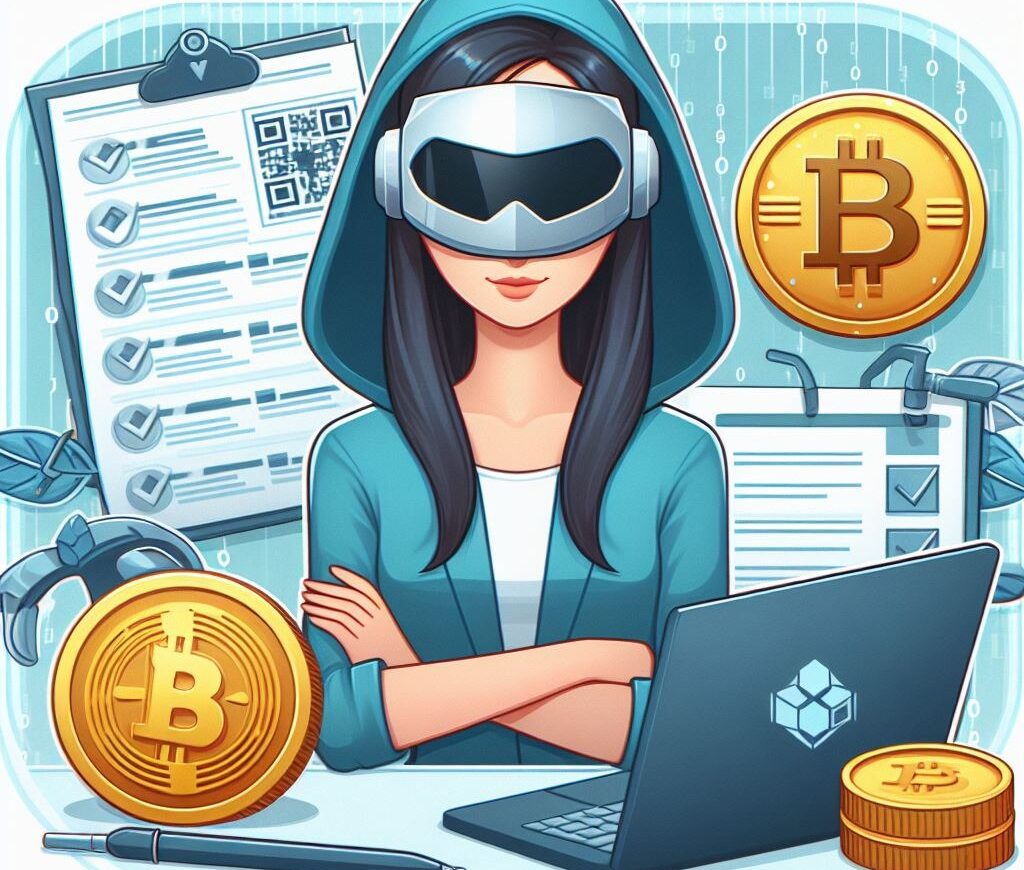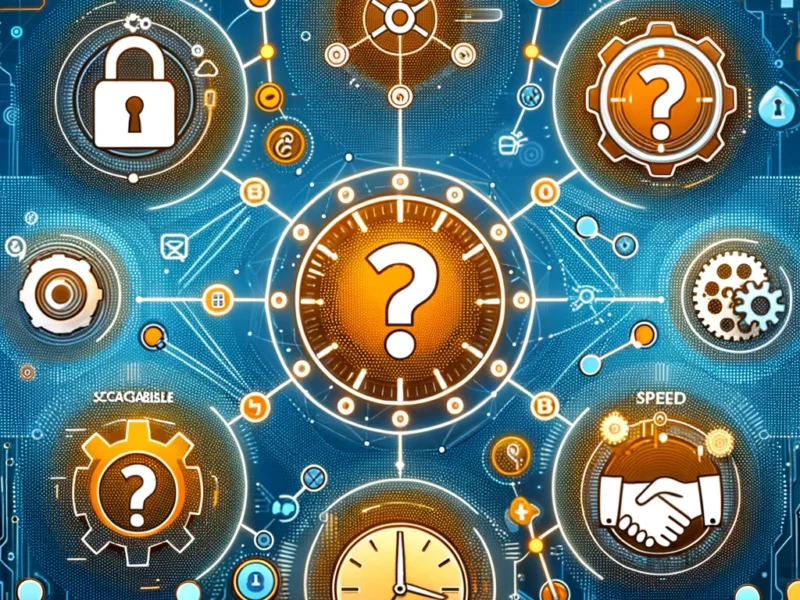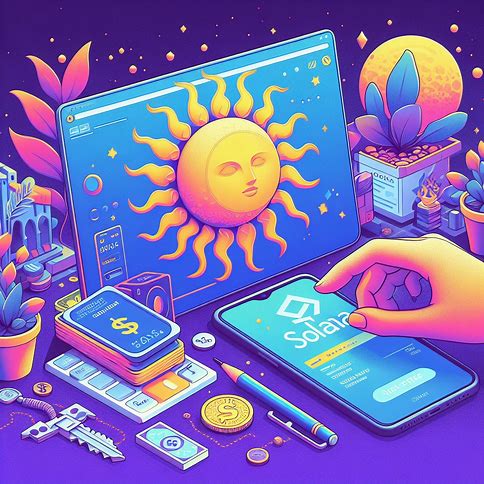Blockchain technology has changed the way we interact, transact, and exchange information online. It is currently transforming several industries, including finance, healthcare, real estate, art, music, and supply chain management.
As cryptocurrencies and decentralized applications (dApps) have become more popular today, the demand for blockchain developers has also increased. In this post, we will explain what a Blockchain developer does and how to become a blockchain developer.
Jump To
ToggleWhat does a Blockchain Developer do?
A Blockchain Developer specializes in creating and implementing blockchain technology solutions. They design blockchain architectures and develop smart contracts and decentralized applications (dApps).
Blockchain Developers integrate blockchain with existing systems and ensure the security and robustness of the blockchain. They collaborate with other developers and stakeholders to deliver high-quality solutions. They continuously learn and adapt to the latest trends in the rapidly evolving blockchain technology landscape.
Steps to Becoming a Blockchain Developer
Step 1: Understand the Basics of Blockchain
Before you start coding, you have to understand the fundamentals of blockchain technology. A blockchain is a decentralized, distributed ledger that records transactions across a network of computers. Each block in the chain contains a cryptographic hash of the previous block, creating an immutable record of all transactions.
To gain a solid understanding of blockchain, start by reading books, articles, and whitepapers on the subject. Some great resources include:
- “Mastering Bitcoin” by Andreas M. Antonopoulos
- “Blockchain Revolution” by Don Tapscott and Alex Tapscott
- The Bitcoin Whitepaper by Satoshi Nakamoto
- The Ethereum Whitepaper by Vitalik Buterin
You can also take online courses on blockchain fundamentals, such as those offered by Coursera, edX, and Udemy.
Step 2: Learn the Basics of Programming
If you are new to programming, you will need to learn the basics before you can start building blockchain applications. The good news is that you do not need to be an expert programmer to become a blockchain developer. However, you should have a solid understanding of at least one programming language, such as JavaScript, Python, or C++.
If you are a beginner, consider taking an introductory course on programming. Codecademy, freeCodeCamp, and Khan Academy offer free online courses that can help you get started.
Step 3: Get Familiar with Blockchain Platforms and Tools
Once you have a basic understanding of programming, you should start exploring blockchain platforms and tools. The two most popular blockchain platforms for developers are Ethereum and Hyperledger Fabric.
Ethereum is an open-source, public blockchain platform that allows developers to build and deploy dApps using smart contracts. To develop on Ethereum, you’ll need to learn Solidity, a programming language specifically designed for writing smart contracts.
Hyperledger Fabric, on the other hand, is a permissioned blockchain platform designed for enterprise use cases. It supports a variety of programming languages, including JavaScript, Java, and Go.
To start using these platforms, you can:
- Take the Ethereum Developer Course on Udemy
- Complete the Hyperledger Fabric Developer Tutorial on the Hyperledger website
- Explore the documentation and guides provided by each platform
In addition to these platforms, there are also a variety of blockchain development tools and frameworks you can use, such as Truffle, Embark, and OpenZeppelin. These tools can help you streamline your development process and ensure your smart contracts are secure and error-free.
Step 4: Practice a lot
Like any new skill, becoming a proficient blockchain developer takes time and practice. Once you have learned the basics of programming and blockchain development, it’s time to start building your own projects.
Start small by building a simple dApp or smart contract. You can find plenty of tutorials and sample projects online to help you get started. As you gain confidence, gradually increase the complexity of your projects.
Here are some project ideas to get you started:
- Build a simple cryptocurrency wallet
- Create a decentralized voting system
- Develop a supply chain management system using blockchain
- Build a decentralized marketplace for buying and selling goods
Step 5: Join the Blockchain Developer Community
Speaking of the community, one of the best ways to accelerate your learning and stay up-to-date with the latest trends and best practices in blockchain development is to get involved with the community.
Attend local meetups and conferences, participate in online forums and discussion groups, and contribute to open-source projects. Not only will this help you expand your knowledge and skills, but it will also help you build valuable connections and potentially land job opportunities.
Some great resources for connecting with the blockchain developer community include:
- GitHub
- Stack Overflow
- Reddit (r/ethereum, r/blockchain)
- Gitter
- Telegram groups
Step 6: Consider Certification
While not strictly necessary, earning a blockchain certification can help you stand out to potential employers and demonstrate your expertise in the field.
There are several reputable certification programs available, including:
- Certified Blockchain Developer (CBD) by the Blockchain Council
- Certified Blockchain Solution Architect (CBSA) by the Blockchain Training Alliance
- Ethereum Certification (ETC) by the Ethereum Training Alliance
These certifications can be expensive and time-consuming to obtain. They are best suited for developers who already have some experience and are looking to take their career to the next level.
Step 7: Keep Learning and Experimenting
Finally, blockchain technology is still in its early stages and is constantly evolving. As a blockchain developer, you will have to continuously learn and stay curious about new developments in the field.
Set aside time each week to read industry blogs and publications, experiment with new tools and frameworks, and work on personal projects. The more you learn and experiment, the better equipped you’ll be to tackle new challenges and opportunities as they arise.
Key Takeaways
- To become a blockchain developer, start by understanding the basics of blockchain technology and programming.
- Familiarize yourself with popular blockchain platforms and tools, such as Ethereum and Hyperledger Fabric.
- Practice building your blockchain projects, starting small and gradually increasing in complexity.
- Join the blockchain developer community and attend meetups, conferences, and online forums to expand your knowledge and network.
- Consider earning a blockchain certification to demonstrate your expertise and stand out to potential employers.
- Keep learning and experimenting with new tools and frameworks to stay up-to-date with the latest trends and best practices in blockchain development.
FAQs
1. Do I need a degree to become a blockchain developer?
– No, you don’t necessarily need a degree to become a blockchain developer. While a degree in computer science or a related field can be helpful, many successful blockchain developers are self-taught or have learned through online courses and bootcamps.
2. How long does it take to become a blockchain developer?
– The time it takes to become a blockchain developer varies depending on your prior experience and how much time you can dedicate to learning and practicing. On average, it takes around 6-12 months of consistent effort to become proficient in blockchain development.
3. What programming languages should I learn for blockchain development?
– The programming languages you should learn depend on the blockchain platform you’re working with. For Ethereum development, you’ll need to learn Solidity. For Hyperledger Fabric, you can use JavaScript, Java, or Go. Other useful languages for blockchain development include C++, Python, and Rust.
4. How much do blockchain developers earn?
– Blockchain developers are in high demand and can command high salaries. According to Glassdoor, the average annual salary for a blockchain developer in the United States is $154,550. However, salaries can vary depending on location, experience, and specific role.
5. What are some common challenges faced by blockchain developers?
– Some common challenges faced by blockchain developers include scalability issues, security vulnerabilities, and regulatory uncertainties. Additionally, because blockchain technology is still relatively new, there can be a lack of standardization and best practices across the industry.










